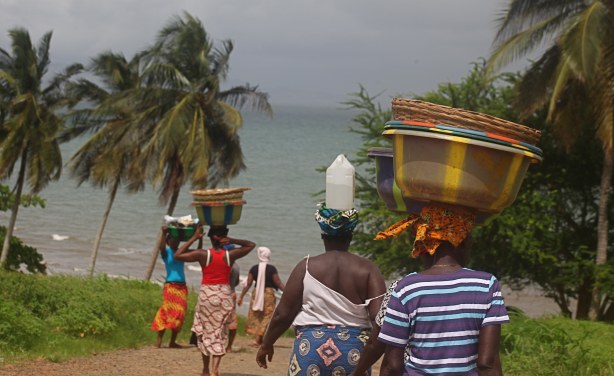Aminata* was only 17 years old when she was arrested for killing her former boyfriend eight years ago. She was sentenced to death for murder in November 2010 and feared each day she would be executed before her sentence was commuted to life imprisonment by the government on Sierra Leone’s 50th Independence Day on 27 April 2011. A local NGO, AdvocAid, filed an appeal for her in 2010 but Aminata is still waiting for her appeal judgment almost 7 years later. She, like many women behind bars, are often forgotten and overlooked.
Aminata is from the Eastern region of Sierra Leone, Kenema, rich in diamonds. She is an orphan, is illiterate and did not go to school. Aminata was in a relationship with Foday* but left him as he used to beat her on a regular basis. Unfortunately, Foday lived in the same compound as Aminata as he was the landlord’s son and he used to harass her to continue the relationship.
One morning in September 2009 it all got too much for Aminata. Foday was beating her with a rubber pipe and she stabbed him with a knife to protect herself. She was arrested by the police and detained for several days. AdvocAid hired a senior female lawyer to represent Aminata in court. She argued at the jury trial that Aminata acted in self-defence and was not guilty of murder. However, the Judge did not agree and, when advising the jury on the law, he stated that using a knife when being beaten by a rubber pipe was disproportionate use of force.
At 17 years old, Aminata was a juvenile and should not have been sentenced to death in the first place. However, like many people in Sierra Leone, she did not have a birth certificate to prove her age and so the police listed her age as 18.
AdvocAid met Foday’s brother in 2013. He stated (on film) that his brother used to severely beat Aminata and he felt bad she was spending her life in prison when she was a victim of abuse.
After her conviction, Aminata was moved to the maximum security prison in the capital Freetown, about 5 hours drive away. She has no contact with family or friends and her physical and mental health is deteriorating as she loses hope that she will ever leave prison. She sometimes attends education classes offered in the prison by AdvocAid and engages in bead making but most days she is quiet and tearful.
Sadly Aminata’s story is not uncommon and AdvocAid has encountered similar cases in its 10 years of providing access to justice to women. The number of women in Sierra Leone and globally who have committed violent crimes is small. However, where women are convicted of murder or manslaughter, in a significant number of cases the victim is a male family member and there is a history of domestic violence.
However, many justice systems do not take into account the trauma experienced by these women. In Sierra Leone, and many other countries, there is no legal provision for a history of abuse to be considered and women have to rely on existing defences, such as self-defence, which are not suitable to women who have experienced prolonged abuse. Further, courts often do not have the right guidance or training about how to take victimisation into account when determining guilt or sentence.
States have obligations to protect women from domestic violence. Sierra Leone’s Domestic Violence Act is a progressive law but there are challenges with enforcement and cultural and socio-economic challenges for women to report abuse, particularly when many women are still reliant on men for financial support.
Aminata’s case was finally heard in the Court of Appeal in May 2014 and the case closed for judgment in February 2015. However, to date no judgment has been given. Sierra Leone’s judicial system is under-resourced and many Supreme Court and Court of Appeal judges also sit on High Court cases. Almost 2 years later, Aminata is still waiting to hear whether she can walk free or whether she will have to spend the rest of her life in prison.
*Names changed to protect the identity of the individuals



One Response
I guess judicial system all over Africa is way below pal, this is just such a sad story. I hope sometimes soon there’ll he hope for girls like her in this part of the world